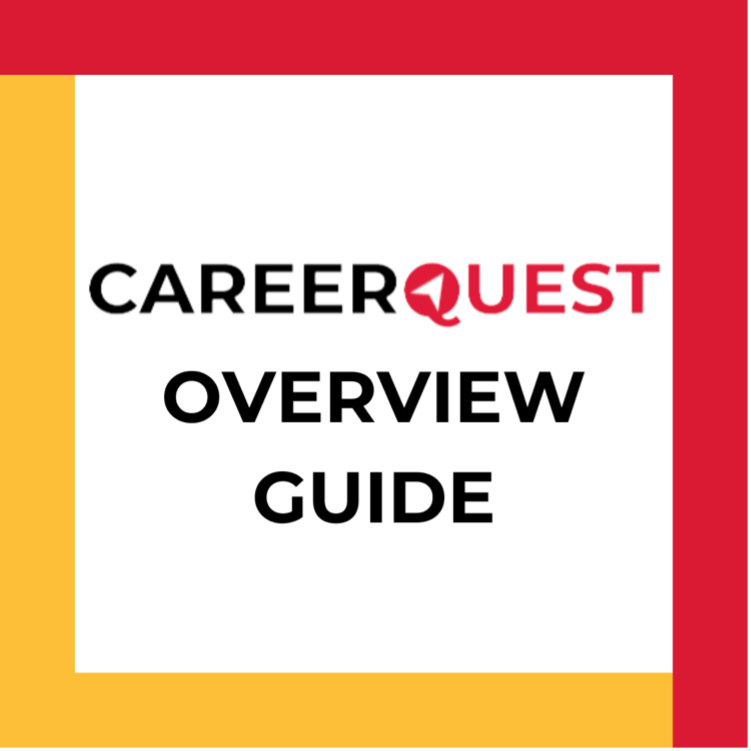Let’s be honest, the decision-making process for academic majors and career possibilities can simply be overwhelming due to the numerous options available. Significant impacts from society, one’s environment, family, or geographic location accompany and play a determining factor in these choices. While external factors exert their influence on the process, choosing an academic major to study for college and a subsequent career is an individual decision that should be based on one’s interests, likes, and goals.
The benefits of a degree are personal. When pursuing a bachelor’s degree, you are on your own time schedule, and it is your journey. Avoid comparing your experience to others as this will only add to the confusion and create an unhealthy approach to your own degree pursuit.
What can be done to make these decision-making processes more palatable? Well, let’s examine the process through food! If you were told that you could only eat one type of food for four years, wouldn’t you want to have a say in what type of food it was? Would you feel comfortable leaving this choice up to someone else? The same questions can be applied when choosing your academic major or career.
Components of a Bachelor’s Degree Explained
Let’s break down the individual components of a bachelor’s degree (also referred to as an undergraduate degree) into more digestible pieces. Most undergraduate degrees are set up to take approximately four years to complete. This number assumes that you are going full-time, and often includes taking classes during the summer. Please know that it is completely fine and normal to take longer than four years. Let’s get that straight right from the beginning!
Regardless of the university or college you choose, a bachelor’s degree is comprised of three different components: general education, academic major-related courses, and electives. Within these three areas, there are specific courses, or course levels (e.g., upper division, etc.) that may need to be taken to successfully complete the degree. The total number of credits that you need within each of these three categories will also vary between universities, and you will find these requirements housed within a university’s academic catalog.
- General Education Courses can be viewed as your first serving at an all-you-can-eat buffet. When you go to a buffet, you may have an idea of which specific foods you like, but everything looks so good that you find yourself putting a variety of different foods on your plate. When trying new foods, maybe you will like them, and maybe you won’t! That is the beauty of an all-you-can-eat buffet because it is an opportunity for exploration to try new foods without having to commit to a full plate of only one item.
General education courses are intended to provide information to you on a broad range of topics. Within these courses, a little bit of knowledge is gained from multiple topics or academic disciplines. Most of these courses are intended to be taken first, prior to taking major-related courses since they encourage personal exploration and can facilitate the decision of which academic major to choose
This is why it is helpful to view the general education courses like an all-you-can-eat buffet. In that, you will not like all the courses you will be required to take, but identifying which ones you like more than the others will help you choose your academic pathway.
- Academic Major-Related Courses differ from general education courses as these courses are purposefully intended to take a deeper dive into one subject matter or academic discipline. It is important to feel reasonably confident in your academic major choice prior to taking the major-related courses specifically for this reason.
Think about it this way, from the choices you made during your first round at the all-you-can-eat buffet, would you rather eat a full plate of the food you liked the most? Or the food you liked the least? Hopefully everyone’s answer is a plate with the food they liked the most!
When narrowing down your choices for an academic major, picture your options as the second round at the all-you-can-eat buffet. This is when you purposefully go back for more of the foods you liked the most from the first round. You want to choose a major that resonates with you and identify a subject matter that you want to learn more about.
- Elective Courses are chosen by students at most universities. They do not necessarily have to be taken at any specific time throughout the college journey like the general education and academic major-related courses. Elective courses can be taken throughout the entire degree program, and it’s important to understand that not everyone’s elective courses will be the same.
Do not worry about what other people select to put on their plates (elective courses) at the all-you-can-eat buffet as their likes and preferences may be different than yours. Focus on your own plate and enjoy the meal!
Why Should I Pursue a College Degree?
It is true that people who earn a college degree tend to earn more income over their lifetime and experience lower rates of unemployment than those with only a high school diploma. One important element to convey about pursuing a bachelor’s degree is that the degree in and of itself is not a guarantee for any type of career. There are many personally enriching, self-discovery, and human developmental growth opportunities to be found through the process of pursuing a college degree that can then be leveraged when choosing a career.
Can I Start a Career Without Going to College First?
The short answer is yes, of course! The trickiness involved with answering this question comes when answering the following questions. For example, what career would you like to have? Do you know the steps that you need to take to get to your desired career? What types of skills or education will your desired career expect you to have? Is a bachelor’s degree a barrier to entry to gain access to your desired career? If your desired career does not require an undergraduate degree, then what types of training are needed? Only once these questions have been answered can an individual know whether attending college is truly the best choice for them.
Raelynn F. Grasso is a Career Advising Specialist at the University of Maryland Global Campus and Adjunct Psychology Professor. She has experience leading and providing career counseling to individuals and groups as well as executing and developing programs to enhance college student enrichment. Ms. Grasso’s areas of research include career decision-making, epistemic cognition, self-efficacy, and college student development. She holds a B.S. in Psychology from the University of Utah along with a M.S. and a Ph.D. in Educational Psychology from the University of Nevada, Las Vegas.





Share This